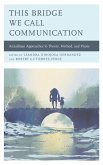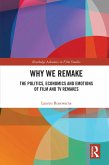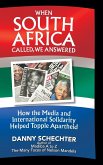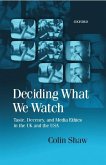Local television newscasts around the country look alike and are filled with crime, accidents, and disasters. Interviews with more than 2,000 TV journalists around the country demonstrate that news looks this way because of the ingrained belief that 'eye-ball grabbers' are the only way to build an audience. This book contradicts the conventional wisdom using empirical evidence drawn from a five-year content analysis of local news in more than 154 stations in 50 markets around the country. The book shows that 'how' a story is reported is more important for building ratings than what the story is about. Local TV does not have to 'bleed to lead'. Instead local journalists can succeed by putting in the effort to get good stories, finding and balancing sources, seeking out experts, and making stories relevant to the local audience.
"We Interrupt This Newscast is must reading for everyone in local news—print and broadcast alike—and for any citizen or student who cares about the future of news in their community. Through compelling evidence and analysis, the authors demonstrate how and why audiences reward quality journalism and why short-term thinking about profits is a lousy long-term ratings strategy." Thomas E. Patterson, Harvard University









